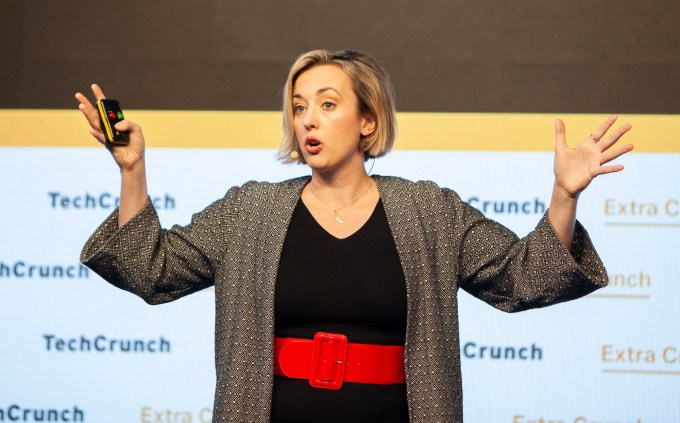| |
| |  Image Credits: Nigel Sussman | | Gaming company Roblox filed to go public yesterday afternoon, so Alex Wilhelm brought out a scalpel and dissected its S-1. Using his patented “mathmagic,” he analyzed Roblox’s fundraising history and reported revenue to estimate where its valuation might land. Noting that “the public markets appear to be even more risk-on than the private world in 2020,” Alex pegged the number at “just a hair under $10 billion.” This week, he also provided comprehensive coverage of Affirm’s IPO announcement, asked five questions about Airbnb’s filing and looked back on Robinhood’s Q3 performance. If you’re trying to make sense of the unicorn IPO stampede, we’ve got you covered. Thanks very much for reading Extra Crunch; I hope you have a relaxing weekend. Walter Thompson
Senior Editor, TechCrunch
@yourprotagonist Read more | | | |
| |  Image Credits: jayk7 / Getty Images | | In his new book, “Subprime Attention Crisis,” writer/researcher Tim Hwang attempts to answer a question I’ve wondered about for years: does advertising actually work? Managing Editor Danny Crichton interviewed Hwang to learn more about his thesis that there are parallels between today’s ad industry and the subprime mortgage crisis that helped spur the Great Recession. So, are online ads effective? “I think the companies are very reticent to give up the data that would allow you to find a really definitive answer to that question,” says Hwang. Read more | | | |
| |
| |  Image Credits: Nigel Sussman | | Consumer lending service Affirm filed to go public on Wednesday evening, so Alex used yesterday’s column to unpack the company’s financials. After reviewing Affirm’s profitability, revenue and the impact of COVID-19 on its bottom line, he asked (and answered) three questions: - What does Affirm's loss rate on consumer loans look like?
- Are its gross margins improving?
- What does the unicorn have to say about contribution profit from its loans business?
Read more | | | |
| |  Image Credits: Visual China Group / Getty Images | | For all the hype about new forms of payment, the way I transact hasn’t been radically transformed in recent years — even in tech-centric San Francisco. Sure, I use NFC card readers to tap and pay and tipped a street musician using Venmo last weekend. But my landlord still demands paper checks and there’s a tattered “CASH ONLY” taped to the register at my closest coffee shop. In China, it’s a different story: Alibaba’s employee cafeteria uses facial recognition and AI to determine which foods a worker has selected and who to charge. Many consumers there use the same app to pay for utility bills, movie tickets and hamburgers. “Today, nobody except Chinese people outside of China uses Alipay or WeChat Pay to pay for anything,” says finance researcher Martin Chorzempa. “So that's a big unexplored side that I think is going to come into a lot of geopolitical risks.” Read more | | | |
| |  Image Credits: Zoom | | Even after much of the population has been vaccinated against COVID-19, we will still be using Zoom’s video-conferencing platform in great numbers. That’s because Zoom isn’t just an app: it’s also a platform play for startups that add functionality using APIs, an SDK or chatbots that behave like smart assistants. Enterprise reporter Ron Miller spoke to entrepreneurs and investors who are leveraging Zoom’s platform to build new applications with an eye on the future. “By offering a platform to build applications that take advantage of the meeting software, it's possible it could be a valuable new ecosystem for startups,” says Ron. Read more | | | |
| |  Image Credits: Sophie Alcorn | | Dear Sophie: My VC partner and I are working with 50/50 co-founders on their startup — let's call it “NewCo.” We're exploring pre-seed terms. One founder is on a green card and already works there. The other founder is from India and is working on an H-1B at a large tech company. Can the H-1B co-founder lead this company? What's the timing to get everything squared away? If we make the investment we want them to hit the ground running. — Diligent in Daly City Read more | | | |
| |  Image Credits: Autodesk | | Earlier this week, Autodesk announced its purchase of Spacemaker, a Norwegian firm that develops AI-supported software for urban development. TechCrunch reporter Steve O’Hear interviewed Autodesk CEO Andrew Anagnost to learn more about the acquisition and asked why Autodesk paid $240 million for Spacemaker’s 115-person team and IP — especially when there were other startups closer to its Bay Area HQ. “They've built a real, practical, usable application that helps a segment of our population use machine learning to really create better outcomes in a critical area, which is urban redevelopment and development,” said Anagnost. “So it's totally aligned with what we're trying to do.” Read more | | | |
| |  Image Credits: XiXinXing / Getty Images | | DoorDash, Affirm, Roblox, Airbnb and Wish each filed to go public in recent days, which means some venture capitalists are having the best week of their lives. “The only thing more rare than a unicorn is an exited unicorn,” observes Managing Editor Danny Crichton, who looked back at Exitpalooza 2020 to answer “a simple question – who made the money?” Covering each exit from the perspective of founders and investors, Danny makes it clear who’ll take home the largest slice of each pie. TL;DR? “Some really colossal winners among founders, and several venture firms walking home with billions of dollars in capital. Read more | | | |
| |
| |
| |
| |
Post a Comment